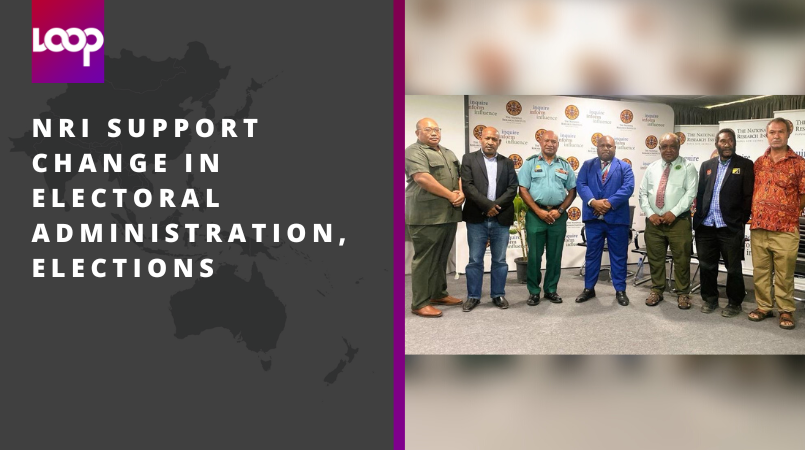
The National Research Institute has released its 2022 Elections Observation Report covering six electorates and one province in the six Highlands provinces.
The general observation report was presented in the NRI Seminar on Observations on the National Elections. The Report was released on 26th May 2023 and will be followed by proceedings of the 2022 Elections Observations and Bibliography on Elections and finally the Monograph.
The 2022 Observations Report was restricted to the Highlands Provinces as past reports show most problems start in the Highlands and there was need to focus and provide detailed report and recommendations.
NRI notes from the Observation that the election laws are in place and on par with Australia or elsewhere except administration and execution is outside of the law and established processes.
Some issue for concern are;
- Names of places and polling places are inconsistent with legal or gazetted names under the Place Names Act or gazetted street names
- Common Roll not displayed at District and LLG Offices for Objections , three months prior to Issue of Writs
- PNGEC and disciplinary forces allowing polling to operate after 6pm when not allowed by law
- PNGEC using of causal staff and non-public servants who have no responsibility under the Public Service (Management ) Act
- Names on Common Rolls for particular polling places removed on polling day where voters cannot vote
- Block Voting where polling officials allow few persons to vote on behalf of everyone for person of their choice
- Distributive Voting where all ballot papers in particular polling place distributed to few candidates only and written by few and placed in ballot boxes
- Absence of persons doing one vote per person in secret as required by law
- Unnecessary shifting of dates for Issue of Writs, Polling Dates and Return of Writs that creates uncertainty and loss of respect for established processes and elections integrity
- Funding of over K1 billion but disciplinary forces cannot do anything to ensure integrity of elections. Disciplinary forces protecting and escorting ballot boxes and securing it for counting although the votes were cast by few persons or voting completed well after 6pm those persons losing respect for law and order
- Electoral Commission should have 3 or more Commissioners to ensure integrity of the election instead of single Commissioner.
PNG NRI Council Chairman, Wilson Thompson on behalf of the Council, thank the Australian and PNG Government f or their support to continue the work undertaken by NRI and its predecessors, the New Guinea Research Unit of the Australian National University since the first Elections in 1964.
The collaboration include elections observation, study and research of elections and political processes and the outputs such as Election Reports, Joint Publications with NRI, UPNG and ANU has played a prominent role in the political development, election administration, elections operations including providing policy recommendations.
The Proceedings of the Election Seminar hosted by NRI with presentations from National Research Institute, Transparency International, Australian National University, UNDP, Integrity of Political Parties and Candidates Commission and the proceedings and recommendations are compiled by Australian National University and will be released jointly by ANU and NRI shortly.
“The NRI Council notes the important role of research institutes, think tanks and non-state actors must play in ensuring that the Westminster system of democracy, with its established precedents and procedure, must be given effect. In PNG, we chose to hide under Westminster democracy but our actions in implementation to the spirit and letter of the law,” stated Mr Thompson.
“The NRI and its predecessor New Guinea Research Unit and ANU has been conducting research and observation to all elections since 1964; and this time we want to see some or all of the recommendations of these findings.
